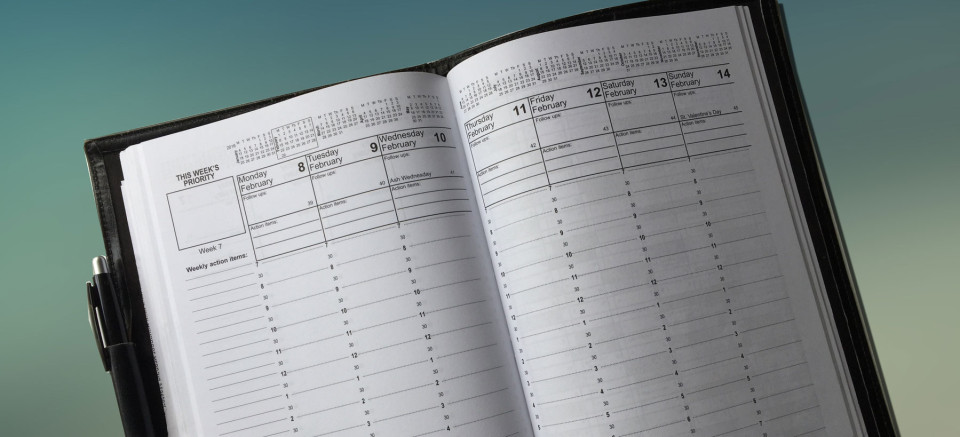In my last blog article I suggested that the Pareto Principle applied to time management seminars, books and training programs as well. And that 20% of the suggestions actually provide 80% of the value. In this article I will venture to provide one of those high-value suggestions – planning and scheduling.
Scheduling is the part of planning that actually initiates the action, which in turn produces the results. “To do” lists are simply reminders of what you think should be done. Scheduling involves actually blocking off the time to do the high priority items from your “to do” list.
A planning calendar, whether it is paper or electronic, is not simply a tool for scheduling appointments with others. It is also for scheduling appointments with yourself to get those important, goal–related tasks accomplished. It is also for scheduling your personal and family activities as well. What gets into your planner usually gets done. What stays on a “to do” list is usually abandoned.
The “secret” of a successful, happy and productive life is to transform your personal and business goals into accomplishments. You will never write a book by simply putting it on a “to do” list. And you will never spend enough time with your family or take that cruise by doing likewise.
Scheduling is the launching pad for action. “To do” lists are intentions; activities scheduled in your planner are commitments.
Why do most of the priority tasks on a “to do” list remain undone? Because, when given a choice, people have natural tendencies such as those listed below.
- They tend to do what’s easy before they do what’s difficult.
- They tend to do what they like to do before they do what is even moderately unpleasant.
- They tend to work on other people’s priorities before they work on their own priorities.
- They tend to work on those things that offer an immediate reward rather than those with a more significant but later reward.
When you schedule something in your planner, you have already made your choice. And hopefully you have chosen to do those things that will have the greatest impact on your life.
Fancy electronic gadgets and Smart phones may help keep you busy; but it’s unlikely they will make you effective.
When choosing a planner, select one that is broken into at least half hour segments so you can physically block off time to work on those priority tasks, projects and activities. Preferably it will extend into the evenings and weekends as well so those personal commitments to attend a son or daughter’s sports event or an evening outing with your spouse or best friend do not get overlooked. I prefer a week at a glance planner so you can see how your week is shaping up.
Plan at least a week ahead. It’s much easier to say no to others if you already have a commitment scheduled at that time. Resist the urge to change anything unless the request is even more important or a real crisis.
Schedule blocks of time for any major projects such as writing a book. Overwhelming tasks are no longer overwhelming when you work on them for an hour or so at a time.
And remember that “to do” lists display your intentions while planners display your commitments.


Recent Comments